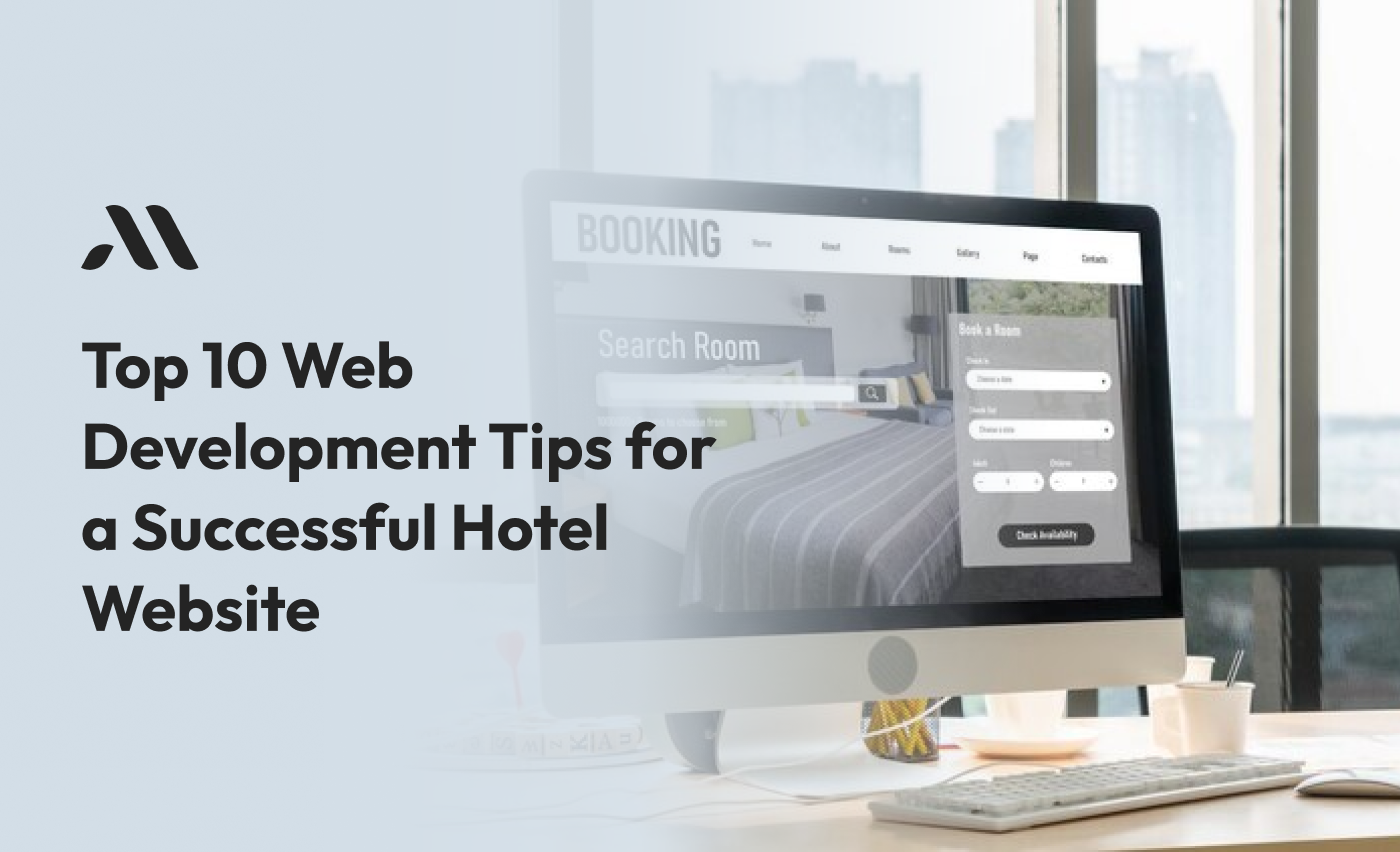If you're a hotel owner, you know how important it is to have a Great Website. It’s like your hotel’s online front desk. To make sure your website helps you get more guests and make more bookings, here are the top 10 web development tips. These web development tips will help you create a successful hotel website that is unique from the crowd.
1. Make Your Website Mobile-Friendly
Today, many people use their phones to browse and book hotels. So, your hotel website needs to look good and work well on smartphones and tablets. This means your site should automatically adjust to fit different screen sizes. A mobile-friendly site is crucial because over 50% of hotel bookings are made from mobile devices.
Tip: Use Responsive design to ensure your site adjusts to any device.
2. Speed Up Your Website
Nobody likes waiting for a website to load. If your site is slow, people can leave before it even opens. Fast websites are important because they keep visitors happy and can help your site rank better in search engines. According to Google, 53% of mobile users leave a page that takes more than 3 seconds to load.
Note: Optimize images and use a reliable web hosting service to improve speed.
3. Use High-Quality Images
Your website should show off your hotel in the best light. Use high-quality images of your rooms, amenities, and surroundings. Clear and appealing photos make your site more attractive and can help potential guests imagine staying at your hotel.
Tip: Hire a professional photographer if you can. Great photos make a big difference.
4. Create Easy Navigation
Visitors should easily find what they’re looking for on your site. Make sure your website is easy to navigate with clear menus and simple layout. This means having a clear booking button and easy access to information about rooms, prices, and special offers.
Tip: Use simple labels for your menu items and keep important information a click away.
5. Include a Booking Engine
To make bookings easy, include a booking engine directly on your website. This allows guests to check availability, view rates, and make reservations without leaving your site. A smooth booking process can help increase conversions.
Remember: Make sure the booking engine is user-friendly and secure.
6. Optimize for SEO
SEO, or Search Engine Optimization, helps your website appear in search engine results when people look for hotels online. Use relevant keywords throughout your site to improve your visibility.
Tip: Regularly update your content and use Meta tags to boost your SEO.
7. Add Guest Reviews and Testimonials
Positive reviews build trust and encourage more bookings. Displaying guest reviews and testimonials on your website helps potential customers see that others have had a good experience at your hotel.
“Good reviews are like gold for a hotel’s online reputation.” – Travel Industry Expert
8. Ensure Secure Payment Options
Your website needs to be secure, especially when handling payments. Use SSL certificates to encrypt data and protect guests’ information. Secure payment options give guests peace of mind when booking.
Note: Regularly update your security measures to keep up with new threats.
9. Integrate Social Media
Link your hotel’s social media profiles to your website. This helps guests connect with you on platforms like Facebook, Instagram, and Twitter. Social media can be a powerful tool for engaging with your audience and sharing updates.
Tip: Add social media buttons to your website and keep your profiles active.
Also Read - SaaS vs. Traditional Software: Advantages and Disadvantages
10. Provide Clear Contact Information
Make sure guests can easily contact you if they have questions or need assistance. Include a contact form, phone number, and email address on your site. Providing multiple ways to get in touch makes your hotel more approachable.
Tip: Consider adding a live chat feature to answer questions in real-time.
Conclusion
These web development tips can help you create a successful hotel website that attracts more guests and makes booking easy. By focusing on mobile-friendliness, speed, high-quality images, and good navigation, you can improve your site’s performance and appeal. Don’t forget to use SEO strategies, showcase guest reviews, and ensure secure payment options. By integrating social media and providing clear contact information, you make it easier for potential guests to find and book your hotel.
Want a top-notch hotel website? MicraSol can help! Our team builds fast, easy-to-use sites with great features. Let us make your hotel stand out online and attract more guests. Contact us today to get started and see how we can make your website amazing.
Remember, your hotel website is usually the first impression guests have of your hotel. Make sure it’s a great one with these web development tips!
By following these web development tips for hotel websites, you’ll be on your way to a more successful online presence. Good luck with your hotel website development!
FAQS
Why is it important to make my hotel website mobile-friendly?
Making your hotel website mobile-friendly means it will look good and work well on phones and tablets. Many people use their phones to book hotels, so if your site isn’t mobile-friendly, you might lose out on bookings. A mobile-friendly site helps more people find and book your hotel easily.
How can I speed up my hotel website?
To speed up your hotel website, you can optimize images (make them smaller without losing quality) and use a good web hosting service. This helps your site load faster, so visitors won’t have to wait long and are more likely to stay on your site.
Why should I use high-quality images on my hotel website?
High-quality images show off your hotel in the best way. Clear, attractive photos of your rooms and amenities make your site look more appealing and can help potential guests picture themselves staying at your hotel.
What is easy navigation, and why is it important?
Easy navigation means visitors can easily find what they are looking for on your site. Clear menus and a simple layout make it easier for people to book a room or get information. This makes your website more user-friendly and can lead to more bookings.
What is a booking engine, and why do I need one?
A booking engine is a tool on your website that allows guests to check room availability and make reservations directly on your site. It makes booking easier for guests and can help increase your hotel’s bookings.








